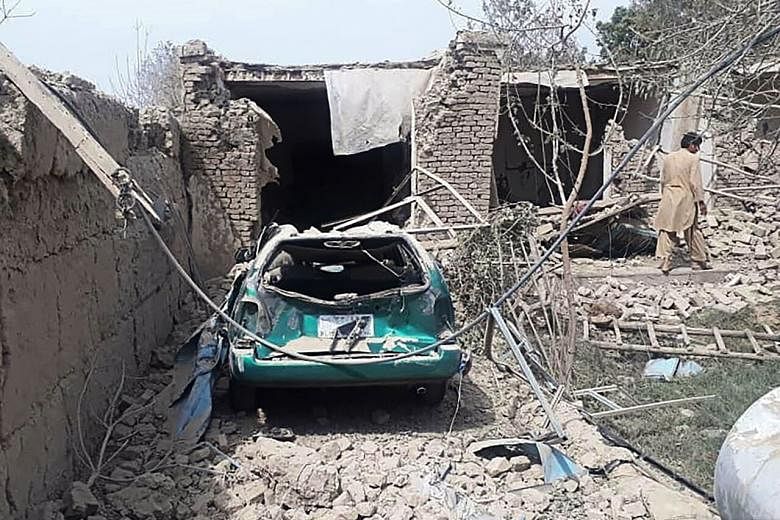KABUL (AFP) - The Taleban will hold talks with the Afghan government on Saturday (Sept 12), but it will be no easy task for the foes to bridge their ideological differences and resolve the bitter legacy of two decades of war.
Here are three key issues surrounding the peace talks:
WHY NOW?
Afghanistan's war has killed tens of thousands of people, displaced millions more, killed some 2,400 US troops and cost the American taxpayer more than US$1 trillion (S$1.3 trillion).
Exasperated by what he has described as America's "crazy, endless wars", President Donald Trump has repeatedly expressed his determination to achieve a full military exit from Afghanistan.
The peace talks "are clearly driven by a US desire to disengage from Afghanistan," said Kate Clark, co-director of the Afghanistan Analysts Network.
"The main goal for the US is to leave, or to leave without leaving behind a bigger mess."
Washington signed a deal with the Taleban in February that paves the way for all foreign forces to pull out of Afghanistan by May 2021.
In return, the Taleban - who control much of rural Afghanistan - gave some security guarantees and a promise to hold talks with Kabul after completing a lengthy prisoner exchange.
WHAT'S ON THE AGENDA?
The two sides are poles apart when it comes to the kind of Afghanistan they want, and at this stage, there is no certain agenda.
"The Taleban have always been clear about what they want and that is a pure Islamic government, which is incompatible with the current liberal democratic Islamic political order," said Nishank Motwani, deputy director at the Afghanistan Research and Evaluation Unit.
The Taleban declared "victory" after signing the deal with the US and have often stated maximalist goals: they consider themselves Afghanistan's legitimate leaders and want to return to power.
"The Taleban's leadership, rank and file fundamentally believe that victory is theirs and as victors, they will claim nothing short of power," Motwani said.
However, in a New York Times op-ed published in February, the Taleban's deputy leader Sirajuddin Haqqani expressed optimism over "intra-Afghan talks".
Some observers have suggested the militants would offer to negotiate a power-sharing deal.
"If we can reach an agreement with a foreign enemy, we must be able to resolve intra-Afghan disagreements through talks," Haqqani wrote.
But few trust the Taleban, whose hardline rule in the late 1990s terrorised many Afghans.
The militants imposed Islamic punishments like stoning women to death, while girls were banned from schools.
Kabul's negotiators want the Taleban to recognise the government, which the militants see as a US "puppet".
They also want the Taleban to agree to a ceasefire, acknowledge women's rights and recognise other achievements of the past two decades.
"All of which is wishful thinking," Motwani said.
WILL THE TALKS SUCCEED?
Emboldened by their deal with Washington, the Taleban are not expected to offer concessions in what are expected to be lengthy talks.
But they face difficult questions like whether to declare a ceasefire and agree to a pluralistic political order.
While an agreement over key issues could raise prospects of long term peace, a breakdown could throw the country into a new civil war.
The jury is still out on whether the Taleban agreed for talks just to minimise the presence of their main enemy, the Americans, Clark said.
Whereas "for Kabul, they are just delaying (the whole process). They would rather the US troops stayed," she added.
"The parties to the conflict have got to have the same goal, which is peace... I fear that's not really the case this time."

